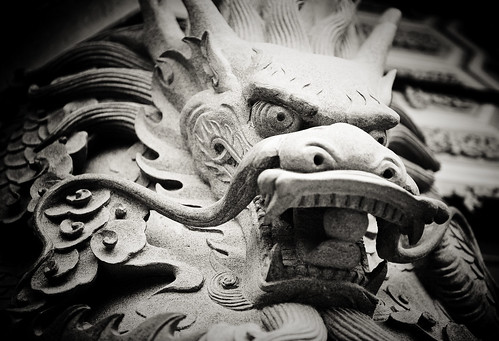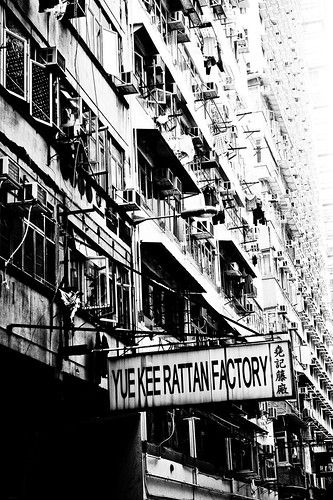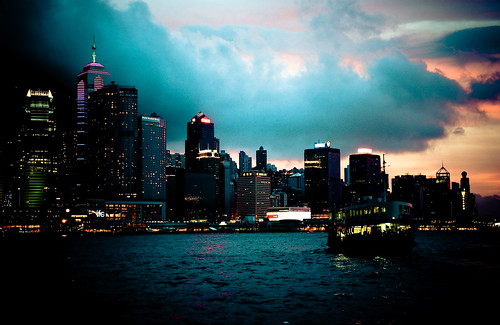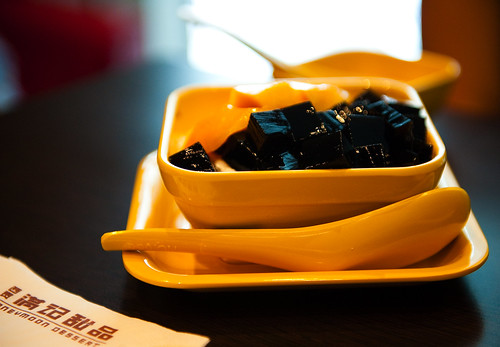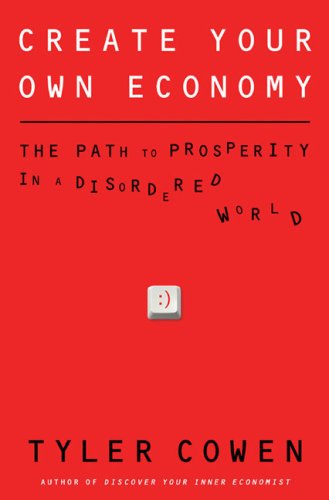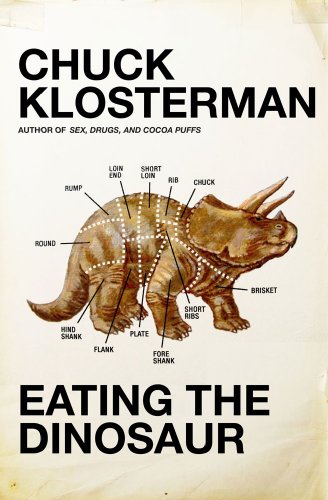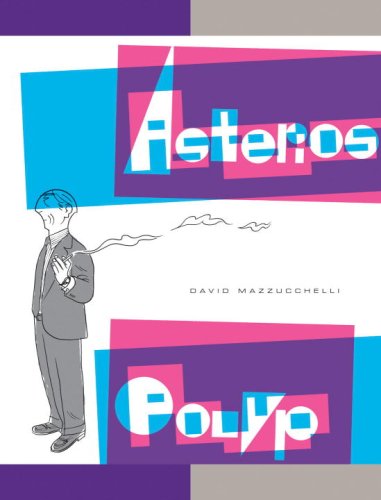The Asian leg of my vacation is complete, and I miss Hong Kong and Tokyo already. It's never a fair comparison, pitting the hometown where you've spent years living and working versus the places you visit for just a few days with an itinerary set to plunder the destination's peak offerings. The allure of the new and mysterious almost always overwhelms the mundane and the familiar, especially given how many vacations come after long stretches of work which have whittled your creative energy down to a nub.
I had many more days of exciting discoveries left in Tokyo. It's such a massive city that my four days there were just enough for me to feel comfortable there at the exact moment I grasped, in a very physical sense, its sheer density and magnitude. I left with a feeling that there were more things I hadn't visited that I would love than I had crossed off the list. That's rare for me, being somewhat of a travel completist.
But more on Asia later. Today I come to speak of the Russian Anna Netrebko, widely considered the world's greatest soprano and its preeminent diva, that term being a great compliment in the world of opera.* I heard Netrebko this afternoon in the final performance of her short run with the San Francisco Opera performing the role of Violetta Valery in Verdi's La Traviata.
I will preface my thoughts by saying I am no expert on opera, so those looking for a review of the finer points of Italian diction and an assessment of where she took her breaths will be disappointed.
I first heard of Netrebko from a friend who'd seen her perform early in her career, and then I lost track of her until a cover story profile in the NYTimes Sunday Magazine. She was most well-known for two things, not often paired in an opera singer: her voice and her beauty, both sensual and captivating. If you were a baseball scout grading her voice on the traditional 20-80 scale you'd give it a 75. As for her looks, I showed some friends her CD covers today after the show and one compared her to Monica Bellucci, an apt comp in that she does recall in many ways the full-bodied Italian starlets of old.
I don't often go out of my way to see certain performers live, but I make an exception for generational talents: Michael Jordan, for example, or Roger Federer, and in this case, Netrebko. When I saw her calendar for 2009 included two stops in the US, one in NY at the Met and one in SF performing La Traviata, I snapped up tickets almost a year in advance for a weekend date of the later and knew I'd plan some way to attend. As I noted before, I'm at best an opera dilettante, but I far prefer a good opera to a musical, and that makes me a rarity among my generation. I'm just as susceptible to being bored to slumber by a pondering German opera, but the best of the ones I do love have an otherworldly musical beauty that lifts me up in a way no musical can.
One of the problems with opera, and one reason I think it struggles to connect with a younger generation, is the deadly pairing of plot implausibility with wooden acting. The cartoon parody of opera, not entirely inaccurate, is of an overweight woman in a Viking helmet, her diminutive male counterpart barely the size of her thigh, screeching so loudly that windows shatter, said immense woman playing an ageless young beauty despite sporting the looks of a fifty-something housewife.
It's a gross objectification and simplification, but I have left many an opera wondering what would have been lost by closing my eyes throughout and just listening considering that the stage choreography consisted mostly of a singer walking to and fro on stage, all facial and bodily expression an afterthought in the pursuit of accurate diction and musical phrasing.
Netrebko arrived on stage in style, in the backseat of a classic Buick. She is a bit heavier now than in photographs I've seen of her, but that's understandable considering she had a baby not too long ago. The voice is still the voice. What's amazing to someone like myself, who can't sing along to more than a few songs at a concert without losing my voice, is how effortlessly she can generate a massive, rich sound. At times she barely appeared to be opening her mouth and yet filled the house with her voice. The ease of her vocal power was such that if I didn't know who se was I'd think it was some odd form of lip synching. This incredible vocal power is a huge advantage when acting out more tender emotions. A lesser singer who'd have to contort her body and strain her face to generate the same output is much less likely to convey emotion than sheer physical exertion.
Netrebko actually matches her vocal expression with acting. No one will confuse the work that can be accomplished while vocally navigating passages of coloratura with the type of method acting Meryl Streep accomplishes in a close-up shot, but Netrebko makes it easier for those who don't understand Italian to understand what she's feeling. There were several moments where I missed the text on the prompter because I was peering through binoculars, but as long as I kept my eyes on her I never lost track of the emotional or plot throughline of the scene.
Having just arrived back in U.S. timezones less than 24 hours earlier, I was worried I'd succumb to jetlag during the show, this being a Sunday 2pm performance that was 6am Tokyo time. But a quick powernap and a rare espresso before the show, combined with the excitement of seeing Netrebko live in a fast-moving La Traviata kept me sharp throughout.
I've never seen La Traviata live, and my lack of knowledge of the finer points of opera preclude any other thoughts on this particular rendition. Two other memorable moments from the performance: at the first intermission, I saw a sign that said Netrebko would be in the lobby after the show signing her CDs and DVDs. At that precise moment I knew that about half the cash in my wallet had just been lit on fire, and I felt a pang of regret that I'd left my SLR at my friend's apartment and would have to rely on my iPhone camera in the underlit lobby. Second, at the end of the performance, when Netrebko came out to a standing ovation, she put a hand over her heart in appreciation and blew kisses to her adoring SF fans, here at the site where she'd made her US debut many years past. As the curtains fell for the last time, just as they were halfway down, she suddenly threw inhibition to the winds and hopped up and down like a young girl, waving her arms frantically overhead, as if sending off departing friends from summer camp. It was a youthful, exuberant expression of joy that I just couldn't picture coming from someone like an Angela Gheorgiu or a Jessye Norman, for example.
I waded through a crowd in the giftshop and picked up some $70 worth of Netrebko CDs for the signing, then jumped into a long line that wrapped around the corner of the lobby inside to wait for her to appear. After twenty minutes in which I saw opera house staff running back and forth with some distress, I felt a hand pull me sharply back to clear a gap in the line to a side door to the orchestra seating of the hall. I looked up to see an older man with a staff badge, and who should walk up from behind him than Anna herself, a young female assistant in tow. The old man rushed to open the side door to give her a shortcut through the hall to get to the autograph table in the lobby, but Netrebko took one look at the door, discerned his intentions, and turned away without breaking stride to walk down the hall past her waiting fans instead.
The old man finally popped back out, puzzled as to why she hadn't come on through. By then Anna was halfway down the hall, waving and clasping hands with fans as they greeted her with shouts of "Anna!" and other phrases in Russian and a variety of other languages.
The line did not move quickly, and while we waited a woman from the opera house came walked down the line with a post-it note pad writing down patron names in block capital letters so we wouldn't have to teach Anna how to spell our names. Good idea, but when she came up to us she also said that we could only give Anna one item to sign. Having purchased four CDs at significant price premiums to what I could have paid on Amazon, I was not pleased. If it were an opera I would have burst out into a fiery aria.
But Anna had already defied the opera staff once, and so I held out hope that she wouldn't adhere to such arbitrary house rules. As I turned the corner and saw her, I understood why the line wasn't moving more quickly. While the staff tried to hustle her fans through, Anna would look each fan in the eye, listen to what they had to say to her, respond, often in their native language (I heard her speak in English, Spanish, Russian, and French to various fans), pose for photos, and sign each CD or DVD with the same deliberate pace.
When I reached her, I chose a double disc set of her performance of La Traviata from Salzburg as the item most worthy of her signature, and she signed it right on the cover of the case. I mumbled something about having been honored to hear her sing, and she thanked me with a warm smile. I turned to leave, but then she saw the other CDs in my hand and reached out her hand.
"Here, let me sign those for you," she said, grabbing the stack. She signed each of them on the cover, but when she reached the last CD, she paused, furrowed her brow, then opened the case and signed the back of the paper insert instead. Then she grabbed the CD of La Traviata back from me.
"I am not sure if this will stay,", she said, rubbing her finger across the ink of her previous signature on the plastic CD cover. But the ink had already dried and did not smear.
"Oh, it is okay!" she beamed.
I usually dread meeting famous people, especially those I admire. The imbalance in relationship of worshipper to hero is so severe as to lead to disappointment more often than not. What can be conveyed in a single autograph line encounter of any substance or genuine emotion between a fan and a celebrity who doesn't know that fan as much more than one of an adoring throng of millions? The usual exchange of pleasantries:
- Fan expresses admiration for celebrity.
- Celebrity thanks fan, then asks what the person's name is and what they'd like to have signed.
- Celebrity signs item while fan perhaps gushes a bit more, perhaps elaborating on the earlier admiration to name a specific moment or instance of the celebrity's work that particularly struck them.
- Celebrity thanks fan for that more specific example in which his/her work has touched the fan, hands back the autographed item, and then turns to the next fan.
- Rinse, repeat.
I've just recently met two celebrities to have items signed, one being another classical music performer I've followed for decades now, and the other being one of my favorite movie and music video directors. In both cases, the celebrities were brusque, borderline cold, and the encounters left me feeling like a silly fanboy who'd wasted their time by forcing them to indulge in such banal and forced interactions with the ungifted masses.
What Netrebko conveyed in our short encounter was subtle but, given my previous two hero encounters, momentous. She showed genuine appreciation for my appreciation of her work, and she displayed a thoughtfulness that, amplified by the previously noted disproportionate one-way admiration that is typical of fan-to-hero relationships, bordered on genuine intimacy. This ability to convey a genuine warmth and caring in short interactions with complete strangers is something I'd only read about from skilled politicians like Bill Clinton. Netrebko has it in spades, and one has the sense that if she could spend even more time meeting her fans she'd have a relationship with them that not opera critics or vicious opera bloggers could mediate. She can be the people's diva, and more than that, she seems like a genuine person, and so she brings a realism to the flawed operatic heroes she plays on stage.
My friend who was with me said afterwards that Netrebko's charms seemed particularly tuned towards men, but I didn't hear her at first, I was so engrossed in flipping through my stack of autographed CDs with a big smile on my face. If opera is to survive and thrive in the next generation (I could not help but notice, once again, that the median age of this crowd was likely in the late 50's), there is something to be learned from the Netrebko's of the classical music world, and it is not about selling out with sex appeal or crossover albums.
* The term prima donna comes from Italian. Prima is the feminine form of primo--"first"--and donna means lady. The prima donna is literally the first lady of an opera troupe. It's not a coincidence that the term is more often used in English to describe a vain, temperamental person. But the operatic sense of the term looks at the glass half full and connotes someone able to fill the seats of a massive opera hall and satisfy patrons paying hundreds of dollars for the privilege of witnessing a performance from someone with a personality and stature to match the ticket prices in scale. At least that is my layman's interpretation.


